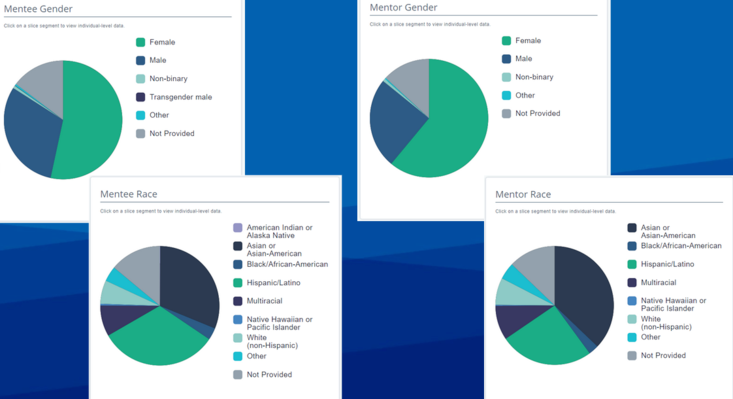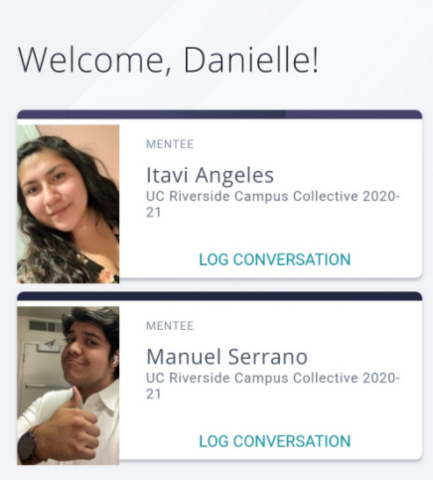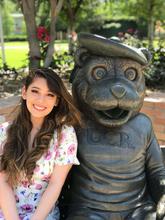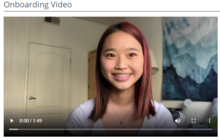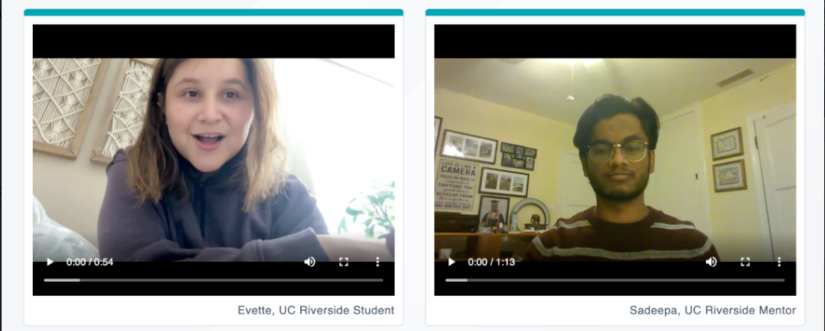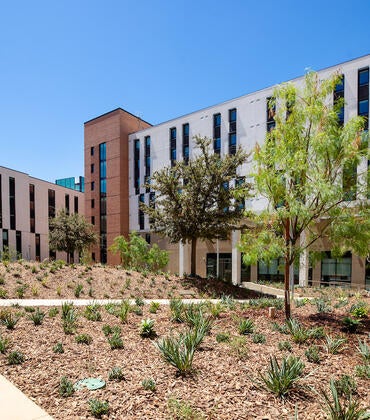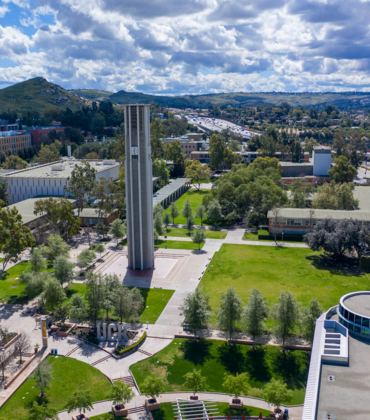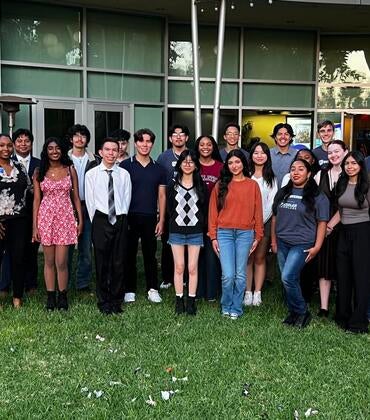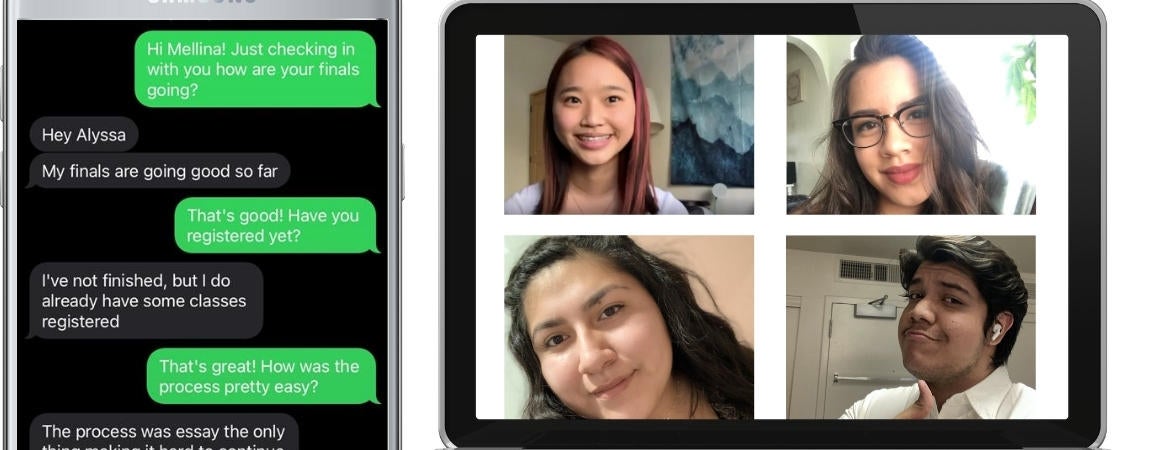
Virtual instruction hasn’t changed students’ interest in helping their fellow classmates.
In fall 2020, UC Riverside’s office of Undergraduate Education launched Campus Collective, a text messaging program designed to connect continuing students with first-year and transfer students in order to create a support network.
In less than four months, Campus Collective has 1,600 mentors and more than 2,000 mentees, with more than 35,000 text messages exchanged between them so far. The goal is to have at least 50% of the freshman class in the program; as of late January, 38% of first-year students were enrolled.
“The underlying reason behind this program is simple: Undergraduate Education’s desire to help students feel connected to campus, to get the resources they need, and to help them get a sense of normalcy,” said Thomas Dickson, assistant vice provost of Undergraduate Education.
Fifty-six percent of UCR’s current student population is first-generation, meaning neither parent or guardian graduated with a four-year degree or higher in the United States. Based on first-gen chats and listening sessions hosted in spring, Dickson’s team realized the greatest need was in fostering a sense of community, creating opportunities for interactions with peers — and doing so away from Zoom.
“They ultimately wanted to spend less time on the computer, and there was a lot of social isolation,” said Dickson, whose office also runs the First Generation program, which supports first-generation college students. “The cool thing is that our continuing students stepped up in such a way that initially we actually ended up with too many mentors, and that can’t be a bad thing to start with.”
Dickson explained that freshman and transfer students are paired with continuing UCR students to conduct all their mentoring activities through text messaging. Some students have opted to also check-in via video chat and phone calls. There is no need to download an app or create an account. When the mentee submits an application, they are matched with a mentor and conversations begin.
Undergraduate Education hired Mentor Collective, a Boston-based firm that custom designs mentorship programs for educational institutions using technology-enabled resources. Mentor Collective matches mentors and mentees based off a series of questions, such as career interest, extracurricular activities, life experiences, spoken languages, and more.
Algorithms create initial matches based on matching research, and then Mentor Collective staff conduct manual matching to help create more authentic connections. All conversations between mentors and mentees are private, but the company does send each group surveys, and allow mentors to submit “insight flags” that alerts Undergraduate Education staff if students are struggling. This creates an opportunity for Undergraduate Education to direct mentees to campus resources and support.
Mentor Danielle Jourdin, 22, said she was motivated to volunteer because she felt lost at times as a first-gen student, especially during her first year at UCR.
“Anything that I went through, I want to share with my mentees so that they can be prepared for those challenges,” said Jourdin, who graduated over the summer and is now a financial institution specialist with the Federal Deposit Insurance Corporation. “I want them to embark on this journey and not be afraid to speak out.”
Jourdin is mentoring two students. Their most common concern is missing out on the in-person experience.
“I tell them, ‘You can still show who you are through a screen.’ I tell them to have their face cameras on. This gives classmates and professors an opportunity to engage, and it gives them an opportunity to stay focused,” Jourdin said.
Another mentor, Azure Otani, 19, said she is working with four mentees and enjoys helping fellow classmates, despite not meeting in person.
“I wanted to find another way to be more connected to people on our campus,” said Otani, a business administration major. “I also wanted to help in whatever way that I could because I know that the online format is much more difficult and completely different than most of the first-year students are used to.”
When the program launched last fall, Undergraduate Education had more than 1,000 mentors and over 1,200 mentees sign up within a few days. During winter quarter they opened the program to transfer students. So far, more than 440 have been matched with a mentor.
Before pairs are matched, mentors are required to participate in a 45-minute orientation that addresses topics such as best practices, privacy, and how to make campus referrals to student support resources.
Mentees are also asked to provide feedback regarding their experience. One response came from a student named Victor, who answered Mentor Collective’s question regarding how the mentor has assisted him.
“Honeysha has helped me realize that I can go to someone when I need help without being scared,” Victor said. “She has also helped me realize that it is important to take mental breaks.”
This mentorship method has surpassed all expectations, Dickson said.
“This is all a volunteer force,” Dickson said. “The fact that they can just send a text message and get a quick response from a fellow student is a great way for students to feel a personal connection to the UCR community.”
